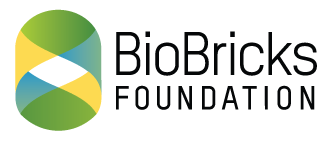sharing & innovation/OpenMTA FAQs for Institutions
OpenMTA FAQs for Institutions
If you don't find the answer you need here, let us know.
What is the Open Material Transfer Agreement (OpenMTA)?
The OpenMTA is a simple, standardized agreement that enables individuals and institutions to share their materials on an open basis. The OpenMTA incorporates many of the protections offered by the UBMTA, such as protection from liability and no warranties, but also includes provisions that reflect with the values of open communities, such as access, attribution, reuse, redistribution, and non-discrimination.
What will the OpenMTA accomplish?
The Open MTA will
- eliminate or reduce transaction costs associated with access, use, modification, and redistribution of materials;
- provide an avenue for researchers and their institutions to be credited for materials and data made openly available;
- support collaboration among researchers across institutional and international boundaries
- facilitate translation of biotechnologies developed with public or philanthropic funds into commercial products and services that benefit all people and the planet;
- promote access to materials for researchers in less privileged institutions and world regions.
Why use the OpenMTA (instead of no MTA at all)?
MTAs have earned a poor reputation among researchers and technology transfer personnel alike for being overly burdensome, time-consuming, and restrictive, resulting in delays in research and draining the limited resources available to technology transfer offices. Understandably, some institutions have adopted “no MTA” policies for transfers of certain materials from one university researcher to another. However, these policies typically specify “if materials are transferred without a specific MTA, the transfer will be presumed to be made under the terms stated in the UBMTA even though no written agreement has been signed.”
As a result, when no MTA is used the restrictive terms of the UBMTA apply even when researchers wish to share their materials freely. By comparison, the OpenMTA allows researchers to share their materials on an open basis by specifying terms for access, attribution, reuse, redistribution and nondiscrimination.
Are signatories to the OpenMTA limited to academic and nonprofit institutions?
No, signatories to the OpenMTA may include companies, for-profit research institutions, and community laboratories as well as traditional academic and nonprofit institutions involved in biological research and transfer of materials.
If my institution becomes a signatory to the OpenMTA are we obligated to transfer all materials under OpenMTA terms?
No, becoming a signatory to the OpenMTA does not obligate an institution to make all materials available under OpenMTA terms. Instead, each institution can decide which materials they wish to make available under OpenMTA terms on a case-by-case basis.
Does the OpenMTA include protections for my institution?
Yes, the OpenMTA includes provisions to protect institutions from potential liabilities.
Does the OpenMTA require that my institution provide warranties?
No, the OpenMTA includes a provision specifying no warranties of any kind.
Does the OpenMTA include implied licenses?
No, the OpenMTA includes a provision specifying no implied licenses to any proprietary rights.
Does the OpenMTA include a covenant not to assert patent or other intellectual property rights?
No, the OpenMTA does not include a non-assertion covenant.
Can my institution recover the cost of providing materials under the OpenMTA?
Yes, the OpenMTA allows reimbursement of costs involved in preparing and distributing materials.
Who developed the OpenMTA?
The OpenMTA is being developed as a collaborative effort between the BioBricks Foundation and the OpenPlant Initiative with input from researchers, technology transfer professionals, social scientists, lawyers, and other stakeholders from across the globe.
May I review or comment on the OpenMTA?
Yes, the comment period is still open. To obtain a copy of the DRAFT OpenMTA Master Agreement for review and comment, please email Linda Kahl, Senior Counsel, BioBricks Foundation at linda@biobricks.org.
Didn't find what you needed in the FAQs? Get in touch with us.
